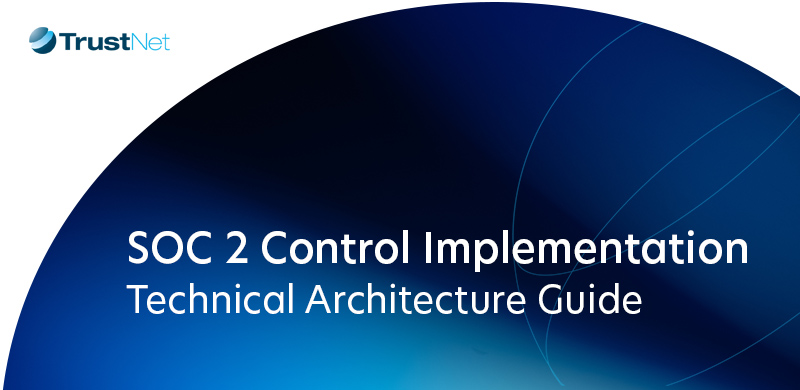Streamlining Success: Best Practices for Effective Vendor Management

At its core, vendor management refers to the process by which organizations control costs, drive service excellence, and mitigate risks to gain increased value from their vendors throughout the deal lifecycle.
Effective vendor management in business operations enables organizations to build strong, collaborative relationships with their suppliers. This alignment is essential for a business’s smooth operation and success, as vendors play a key role in the supply chain.
In essence, streamlining the vendor management process is not merely about minimizing costs or maximizing efficiencies; it’s about strategically leveraging these relationships to achieve broader business objectives and sustainable growth. Keep reading as we delve deeper into the best practices for effective vendor management.
Key Components of Effective Vendor Management
The foundation of a robust vendor management strategy starts with a meticulous selection process underpinned by clear criteria and comprehensive due diligence:
- Selection Criteria: Identifying potential vendors involves evaluating their capability to meet specific needs, including quality, reliability, cost, and alignment with the company’s values and objectives.
- Due Diligence Processes: Conducting thorough due diligence is crucial for assessing potential vendors’ financial stability, operational integrity, and market reputation. It helps identify any possible risks associated with a vendor before formalizing the partnership.
Effective contract negotiation and the establishment of clear performance metrics are also essential for ensuring the accountability and value of vendor relationships:
- Contract Negotiation Strategies: Successful negotiations focus on creating mutually beneficial agreements with clear terms regarding scope, costs, timelines, and deliverables. It’s also important to establish mechanisms for conflict resolution and adjustments based on changing needs.
- Performance Metrics: Setting up quantifiable performance metrics allows for objectively evaluating a vendor’s performance, ensuring they meet or exceed the agreed-upon standards. These metrics should be aligned with key business objectives and regularly reviewed.
Lastly, continuous risk assessment and compliance monitoring are critical for managing and mitigating risks throughout the lifecycle of vendor relationships:
- Risk Assessment: Regularly evaluating the risks associated with each vendor, including operational, financial, and reputational risks, is vital. This proactive approach helps identify potential issues early and devise strategies to mitigate them.
- Compliance Monitoring: Ensuring vendors comply with all relevant regulations, industry standards, and contractual obligations is non-negotiable. Regular audits and reviews should be conducted to monitor compliance, especially for vendors handling sensitive data or operating in regulated sectors.
By focusing on these key components, organizations can ensure productive, compliant, and mutually beneficial relationships with their vendors, ultimately contributing to their success and resilience.
Learn more about our vendor management services Here
Best Practices for Streamlining Vendor Management
To ensure the success and efficiency of vendor management processes, businesses must adopt certain best practices. These practices facilitate smoother operations and foster stronger relationships with vendors, leading to better outcomes for both parties:
A. Establishing Clear Communication Channels with Vendors
Clear and open communication is fundamental to any successful partnership between businesses and their vendors. Establishing well-defined channels for communication ensures that both parties can effectively convey their needs, expectations, and feedback.
Recommended Actions:
- Designate specific points of contact within both organizations.
- Utilize collaborative tools and platforms for regular updates and discussions.
- Schedule regular meetings to review progress and address any concerns.
B. Implementing Vendor Scorecards for Performance Evaluation
Vendor scorecards are essential for evaluating and monitoring vendor performance against predefined metrics and KPIs. These scorecards enable businesses to objectively assess the value and efficiency vendors bring, identifying areas of excellence and opportunities for improvement.
Recommended Actions:
- Define clear and measurable performance indicators.
- Provide feedback based on scorecard results to encourage continuous improvement.
- Use evaluations as a basis for future contract negotiations and renewals.
C. Utilizing Technology for Automated Procurement Processes
Leveraging technology to automate procurement processes can significantly enhance the efficiency of vendor management. Automation tools help streamline various tasks, from vendor selection and contract management to order processing and invoice handling.
Recommended Actions:
- Invest in a comprehensive Vendor Management System (VMS) or procurement software.
- Ensure the chosen technology integrates well with existing systems.
- Train staff on how to effectively use these technologies to maximize benefits.
These strategies improve operational efficiency and contribute to building stronger, more productive relationships with vendors.
Enhancing Vendor Relationships
Enhancing these relationships lies in mutual trust, transparency, effective conflict resolution, and collaboration on innovation. Below are strategies that have been identified as instrumental in strengthening vendor partnerships:
- Open Communication: Regular and open communication about expectations, capabilities, and limitations helps build trust. Creating a culture where both parties can freely express concerns and suggestions is essential.
- Transparency in Dealings: Being transparent about the business needs, changes in demand, and potential challenges fosters a deeper understanding and alignment of goals between the company and its vendors.
- Establish Clear Protocols: Having predefined protocols for conflict resolution ensures that both parties know how to proceed when issues arise, minimizing misunderstandings and delays in resolution.
- Focus on Solutions: When addressing issues, focus on finding fair and satisfactory solutions for both parties. This approach resolves the current problem and strengthens the relationship by demonstrating a commitment to partnership.
- Joint Innovation Projects: Engaging vendors in joint innovation projects can lead to developing new solutions that address specific challenges or market opportunities. This collaborative approach leverages the strengths and expertise of both parties.
- Continuous Improvement Programs: Implementing programs that continuously improve products, services, or processes with your vendors can lead to efficiencies and cost savings. Regular review meetings to discuss performance and identify areas for improvement are crucial.
By adopting these strategies, companies can build resilient, mutually beneficial partnerships contributing to long-term success and sustainability.
Compliance and Risk Mitigation Strategies
Ensuring vendor compliance with regulatory requirements and industry standards is crucial for businesses to navigate the complex landscape of compliance risk management effectively.
Implementing risk mitigation measures, such as developing a comprehensive risk management plan that includes strategies for avoidance, reduction, transference, and acceptance, is vital for safeguarding against potential disruptions that could impact business operations.
Furthermore, conducting regular audits and assessments is a cornerstone of ongoing compliance monitoring. This allows businesses to identify and address any compliance gaps proactively. This continuous process ensures that organizations meet current compliance standards and are well-prepared for future regulatory changes.
Lastly, partnering with experienced experts like TrustNet can provide essential guidance and tools for maintaining compliance across various jurisdictions and sectors. TrustNet ensures that businesses remain resilient in the face of evolving challenges.
Elevating Business Outcomes Through Enhanced Vendor Management
Effective vendor management is vital to operational success, emphasizing clear communication, performance evaluation, technology use, trust, and innovation. Businesses should embrace these practices for improved efficiency and compliance.
TrustNet offers compliance and risk mitigation expertise, helping businesses enhance their vendor management strategies for better performance and regulatory compliance. Consider engaging experts like TrustNet to fortify your approach, ensuring your vendor partnerships are as productive and compliant as possible.




